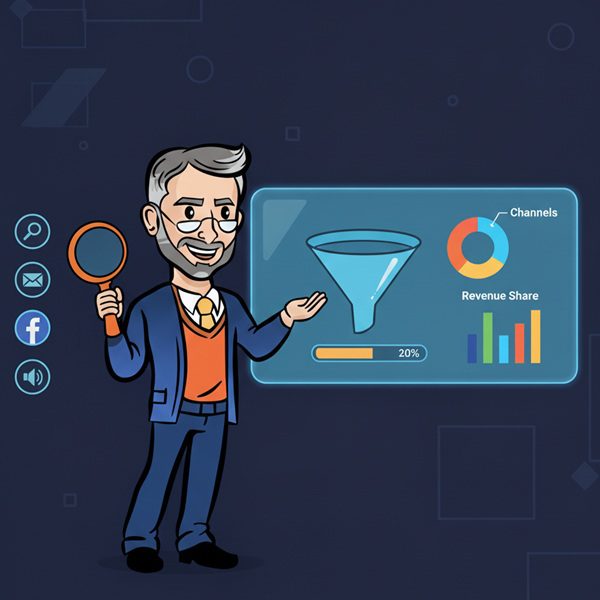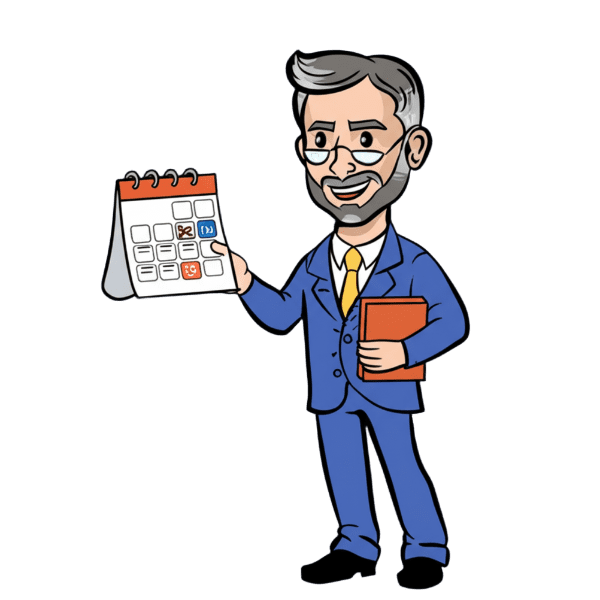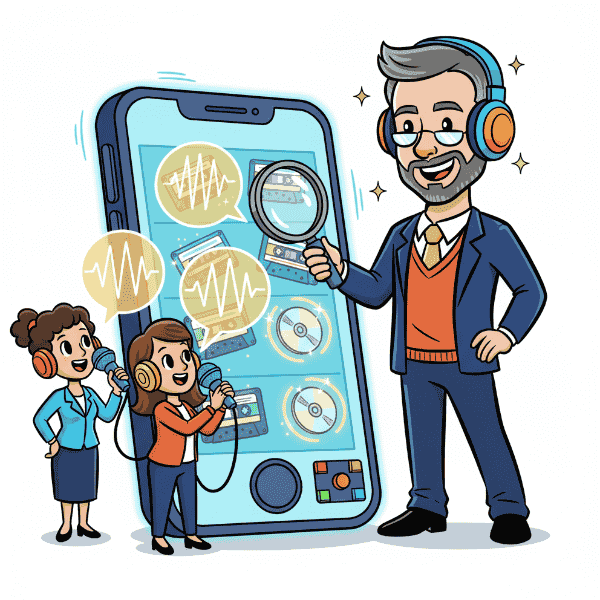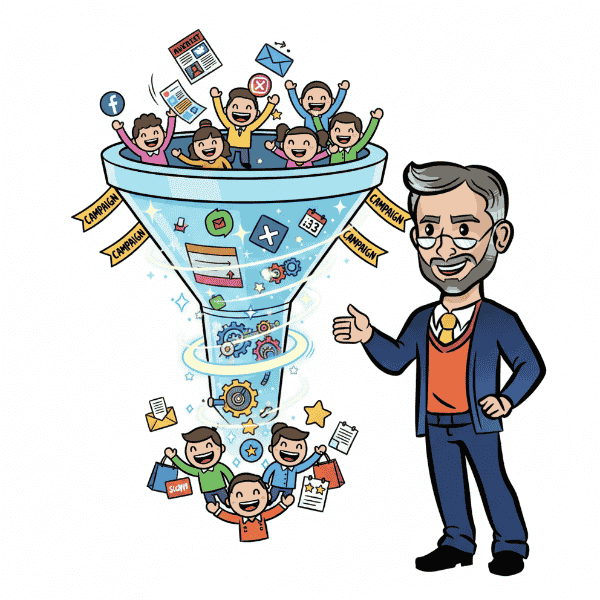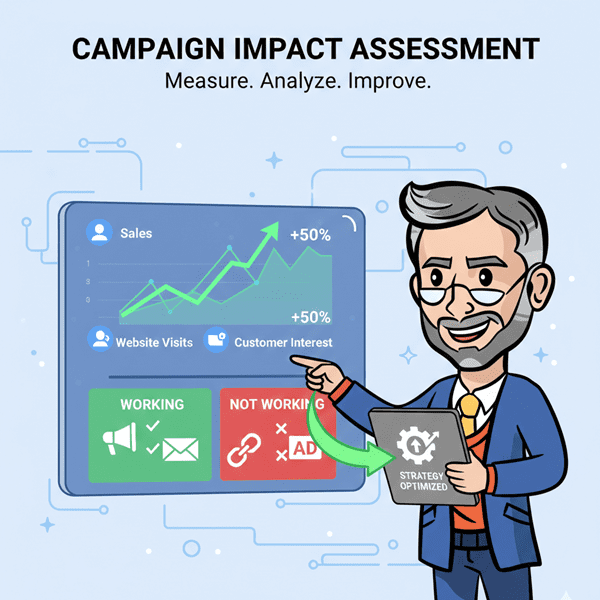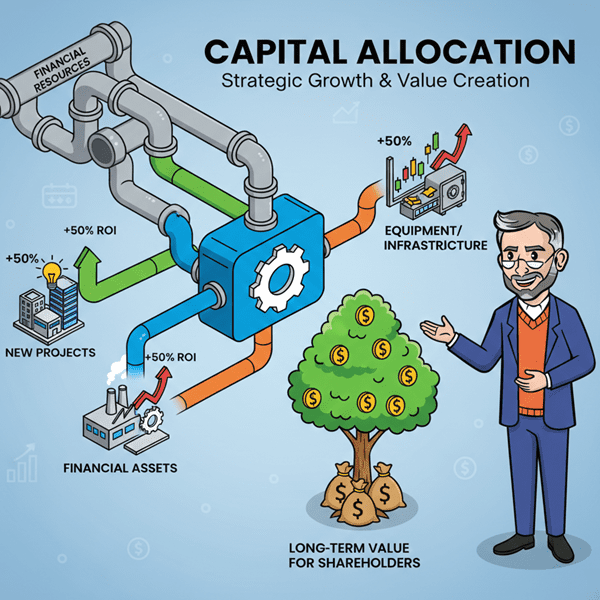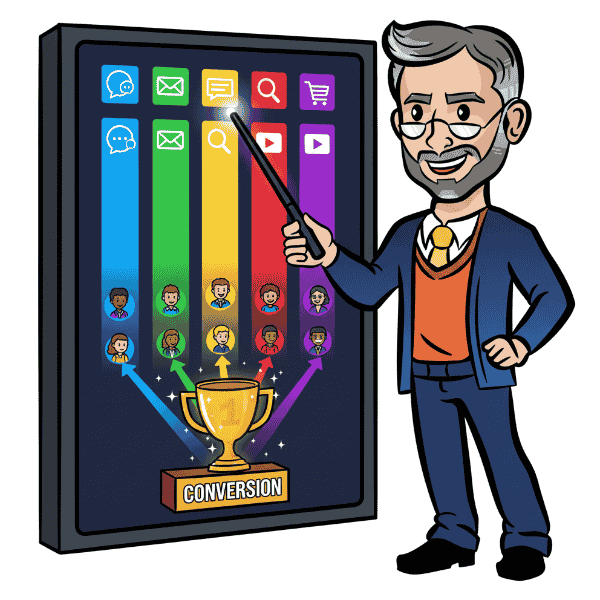Conversion Funnel Design Definition: Conversion funnel design is the process of mapping and optimizing the stages of a buyer’s journey—from awareness to action—to maximize the number of prospects who become paying customers. A well-structured funnel ensures startups can scale efficiently, creating predictable growth and sustainable revenue.
Use It In a Sentence: By refining our conversion funnel design, we aligned our messaging with customer intent and boosted our overall conversion rates.
Why Conversion Funnel Design Matters
Strategic Customer Alignment: Helps businesses tailor messaging to each stage of the buyer’s journey, ensuring prospects receive the right value at the right time.
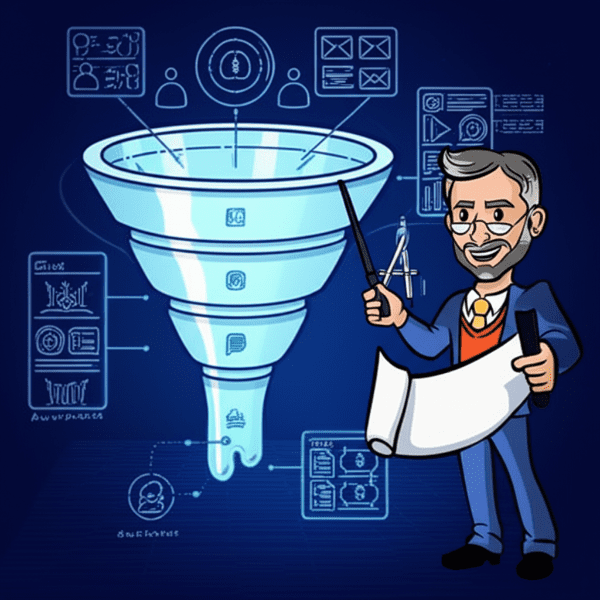
Higher-Quality Leads: By clarifying steps and removing friction, the funnel naturally filters and attracts leads with stronger intent to purchase.
Traffic-to-Revenue Transformation: Goes beyond generating clicks—its focus is on converting traffic into paying customers, improving ROI across campaigns.
Foundation for Growth: A clear, optimized funnel supports predictable scaling and long-term revenue stability, especially crucial for startups.
Benefits of Effective Conversion Funnel Design
- Higher Conversion Rates: A streamlined funnel reduces friction and guides prospects through a logical path, making it easier for them to take the next step.
- Improved Customer Experience: When your funnel is mapped to customer behavior and intent, every interaction feels more relevant and intuitive.
- Scalable Growth for Startups: Startups benefit from having a repeatable, data-driven system in place to convert leads into loyal customers without burning through budgets.
- Better Use of CRM Data: A strong funnel framework supports CRM hygiene, ensuring that customer data is clean, organized, and actionable for follow-ups and re-engagement.
- Insight-Driven Optimization: With clear stages in place, you can pinpoint exactly where leads drop off and continuously refine each touchpoint for better performance.
Key Elements of Conversion Funnel Design
- Audience Awareness: Identify how your target audience discovers your brand—organic search, paid ads, social media—and align your messaging with their expectations.
- Lead Capture: Create compelling lead magnets and intuitive forms to capture essential contact details while maintaining CRM hygiene from the start.
- Nurture & Education: Use email sequences, remarketing, and content marketing to build trust and guide leads toward a decision.
- Conversion Triggers: Strategically place CTAs, special offers, or limited-time deals that push users to take action—whether it’s scheduling a call or making a purchase.
- Post-Conversion Engagement: The funnel doesn’t end at the sale. Follow-up sequences and onboarding processes are critical, especially for startups looking to drive retention and upsells.
- Data & Optimization: Use analytics to measure performance at each stage of the funnel and apply A/B testing to improve results over time.
More Definitions
(From the Sales & Marketing Jargon Encyclopedia)
- Marketing Attribution: The process of identifying which marketing touchpoints or channels contributed to a customer’s decision to convert or make a purchase.
Read More> - Cost per thousand impressions (CPM): A metric that shows how much it costs to display your ad one thousand times, regardless of clicks or engagement.
Read More> - Customer Conversion Cate: The percentage of visitors or leads who take a desired action—like making a purchase or signing up—out of the total number of prospects.
Read More> - Conversion Rate Testing: Experimenting with different elements of a webpage or campaign to see which version drives more conversions.
Read More>
Useful Posts
(From the Sales Funnel Professor Blog)
- Top of Funnel: Organic Social Strategies: Learn how to build brand awareness using unpaid social media content and outreach.
Read More> - SEO Top of Funnel Strategies: Dive into organic tactics that increase visibility at the awareness stage without a paid budget.
Read More> - How to Find Low-Hanging Fruit in Sales & Marketing: Discover practical ways to identify quick wins and easy-to-implement strategies that don’t require a big spend.
Read More>


